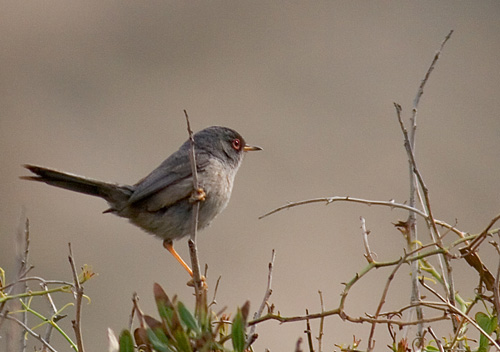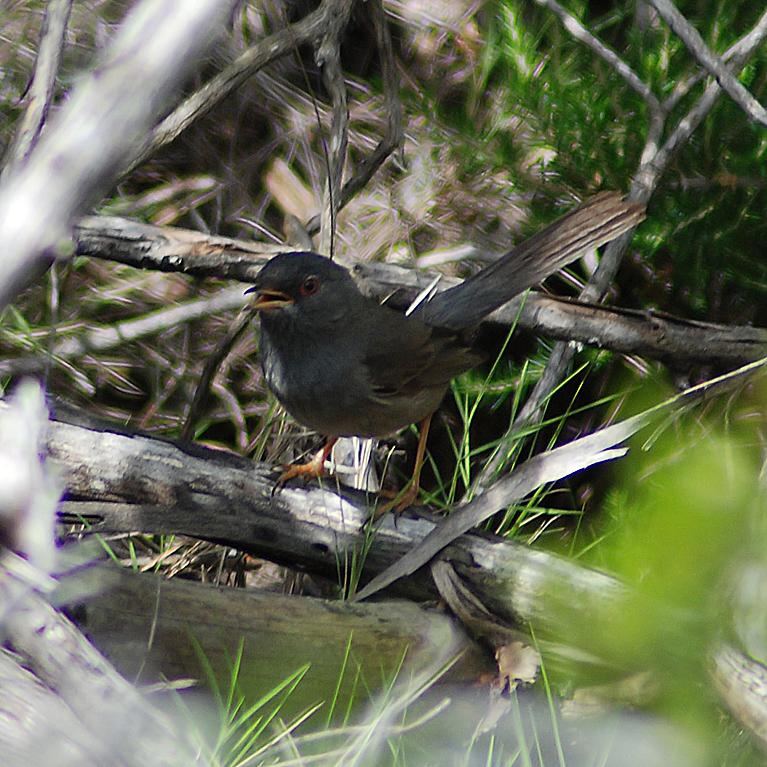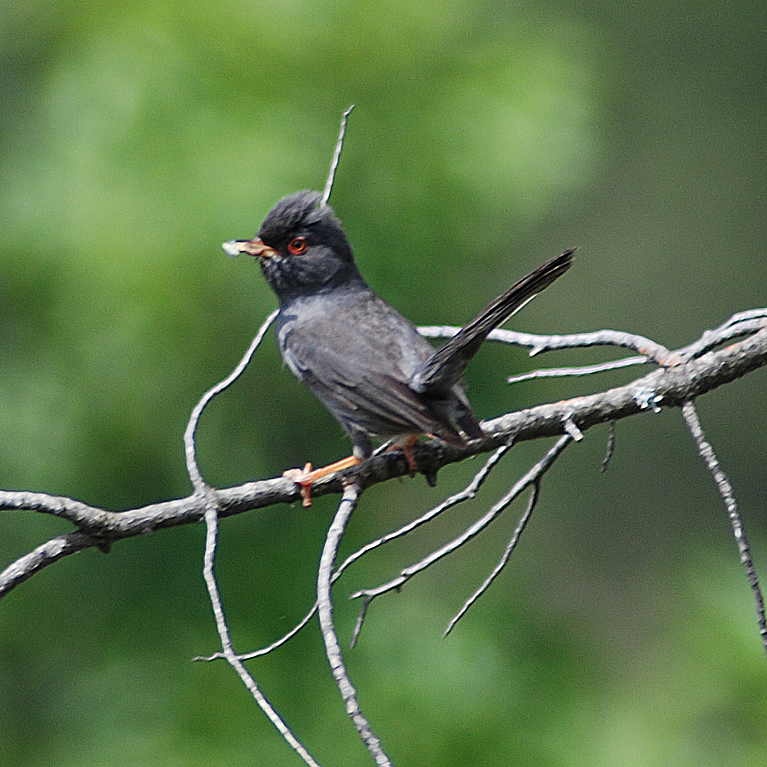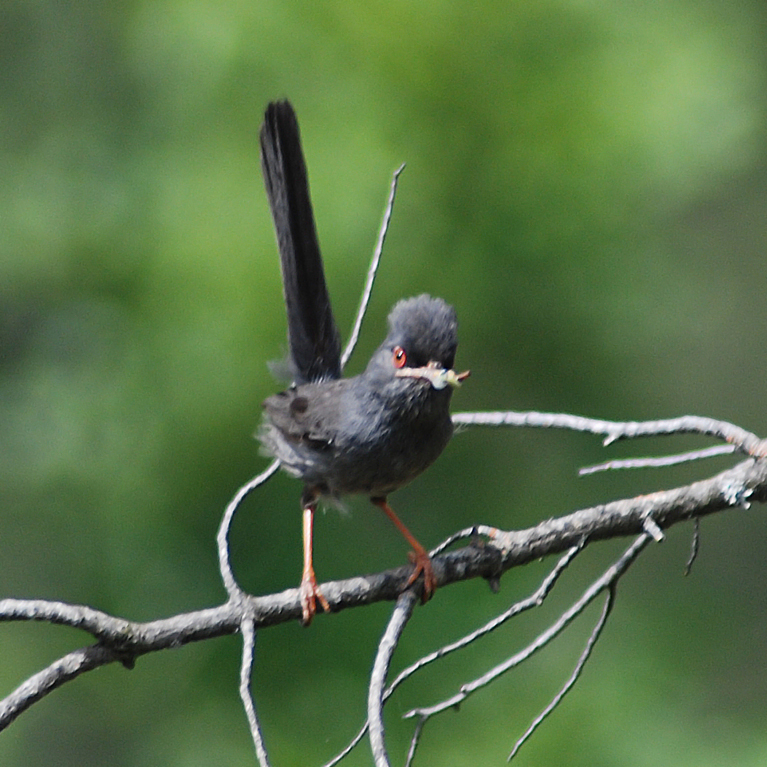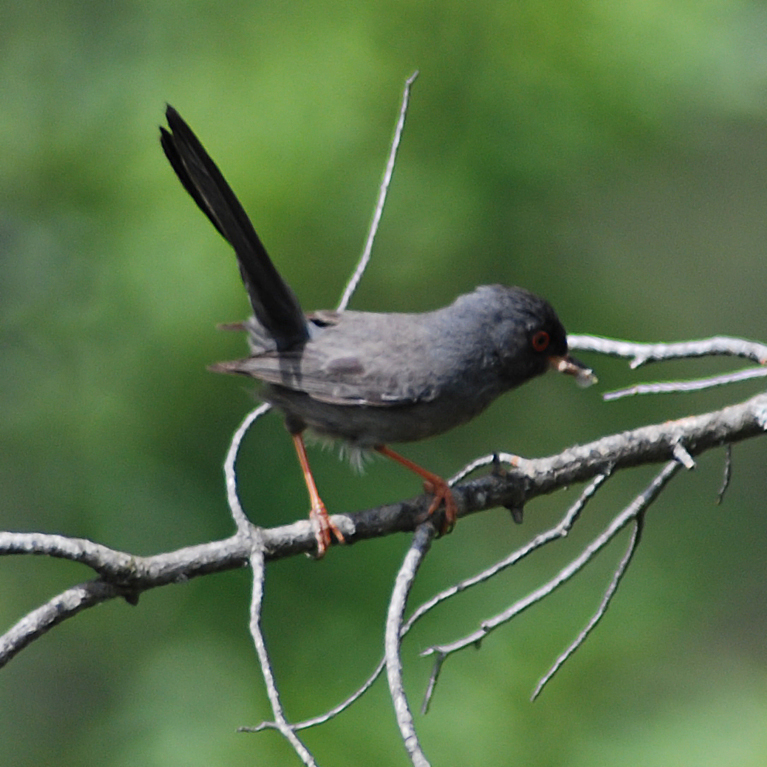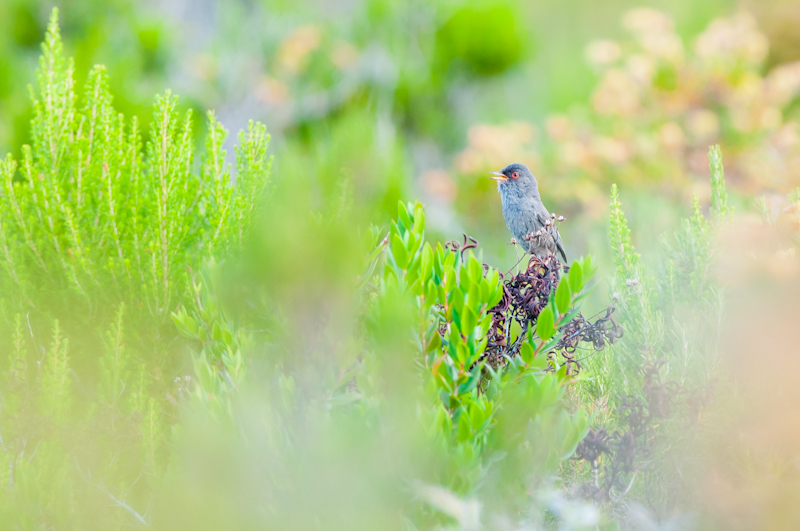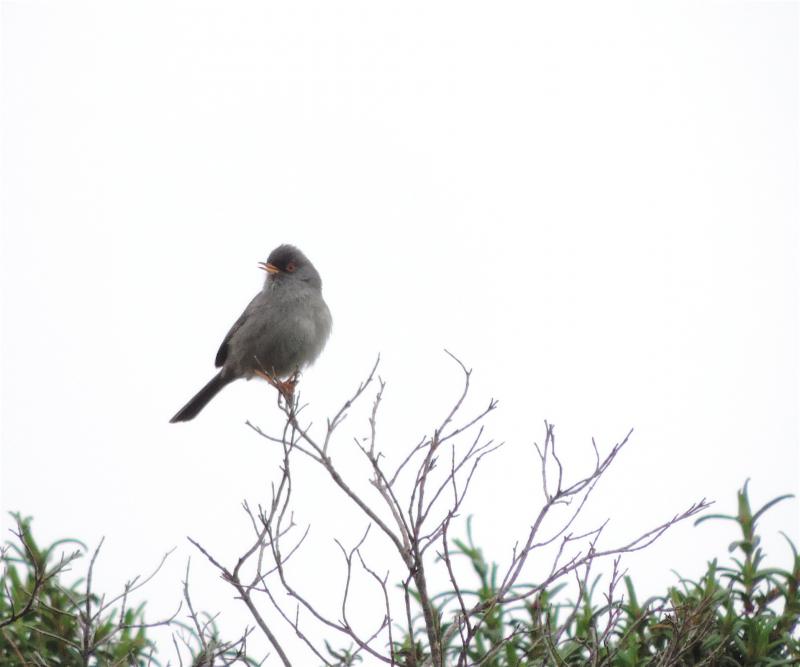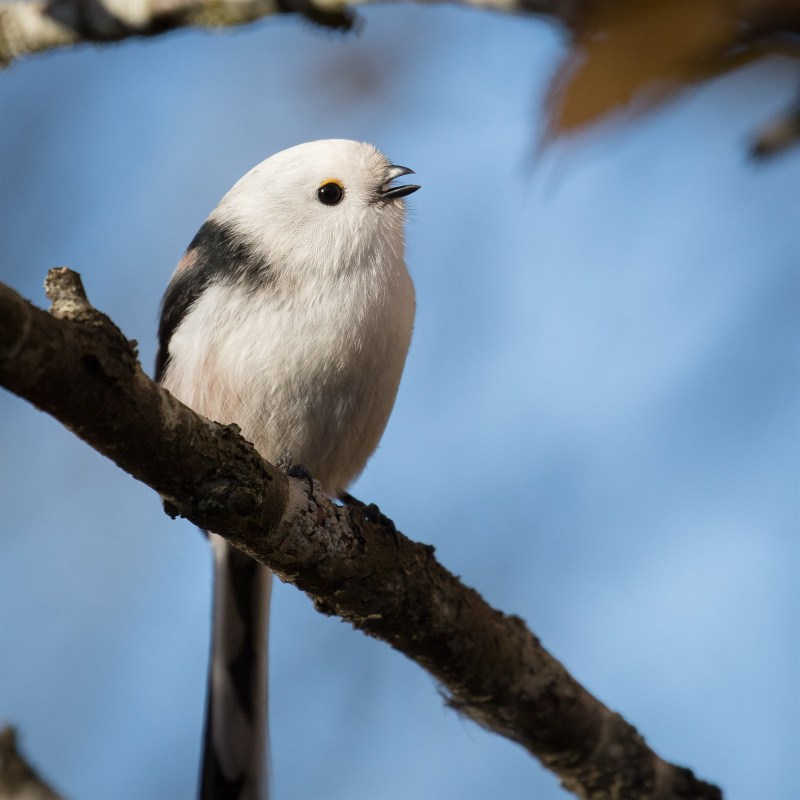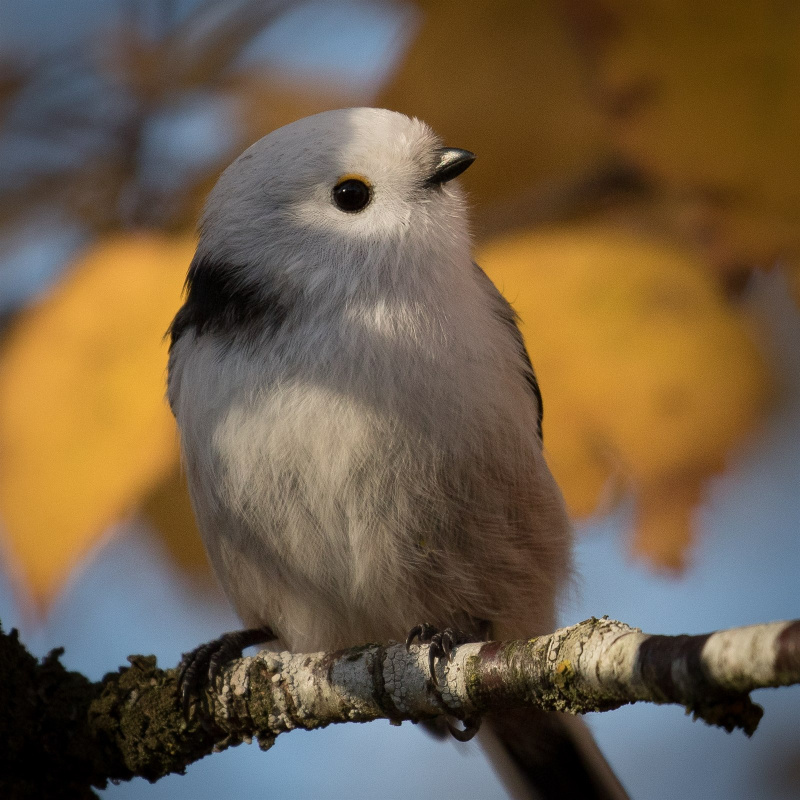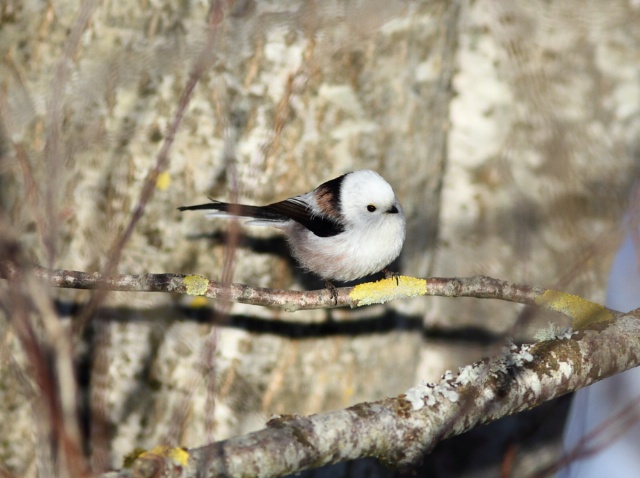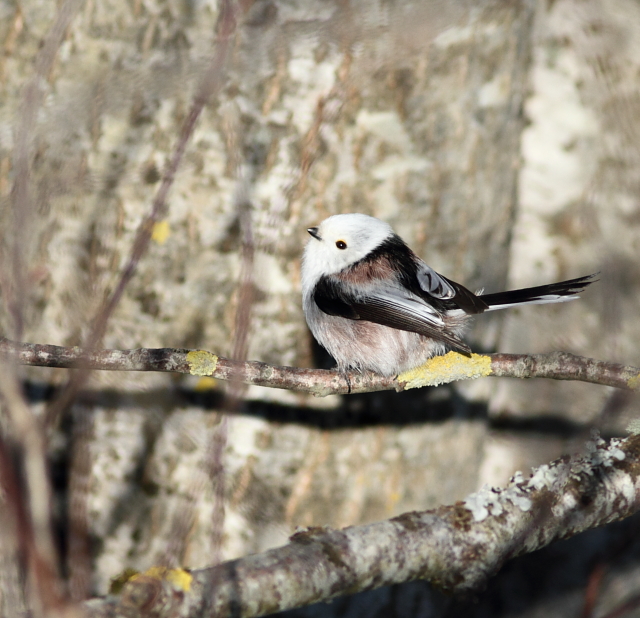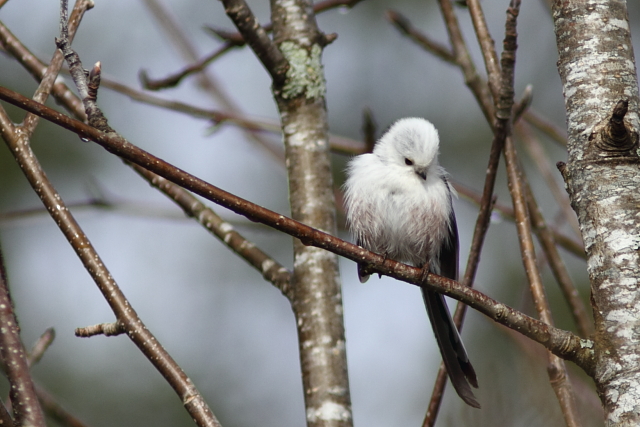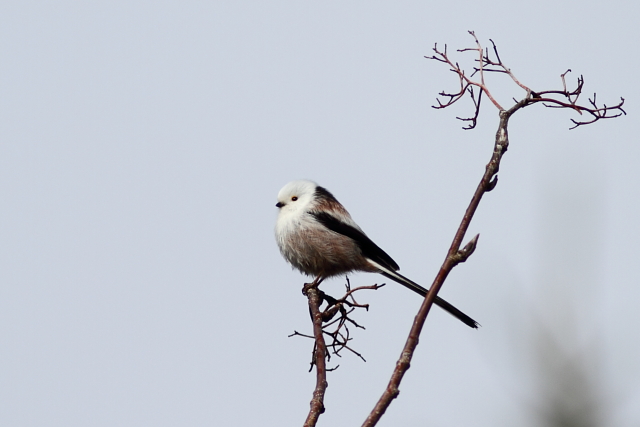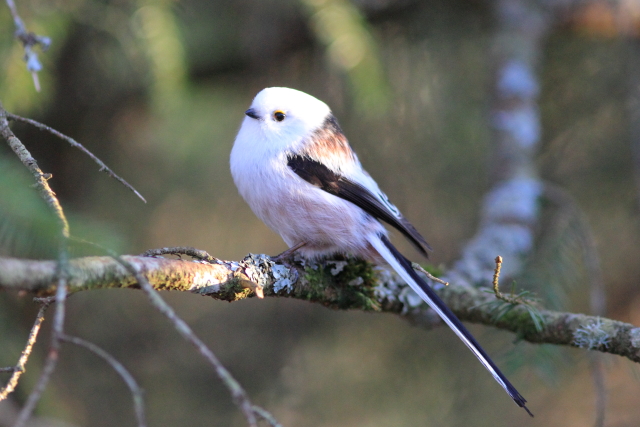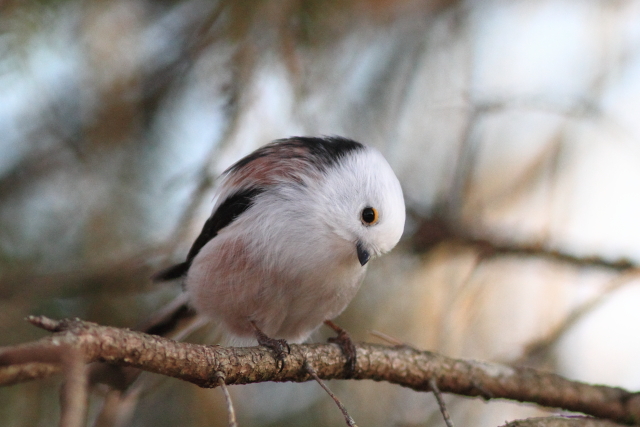Marmora's Warbler (Curruca sarda)
Long-tailed Tit (Aegithalos caudatus)
Very similar to Balearic Warbler but breeding range does not overlap. Also easily confused with sympatric Dartford Warbler due to similar build with long tail, high crown, short wings and spiky bill. Told from latter by all over lead-grey plumage, lacking vinous underparts. Female similar to male but lacks dark lore and throat is paler . Immature birds are very similar to immature Dartford Warbler and are best identified by call, but have less brown back, paler throat and dirtier and greyer underparts.
Sound:Song hurried and similar to both Sardinian, Dartford and Spectacled Warbler, but is softer with more tinny timbre. Interwoven soft rolling "trrrrtrrr" usually become more prominent towards the end of each phrase which often is concluded by 3-4 clear whistling "wit". Alarm call a short, Stonechat-like and grating "treck", very different from both Balearic and Dartford Warbler.
Alarm call and song:
Distribution:
Xeno-canto: map
Ecology:Birdlife ecology
Links:
Observation.org Latest observations
Image search Flickr NB! May give other species
CCCC-photo:Wouter Van Gasse, Licence,Link.
CC-photo:Wouter Van Gasse, Licence,Link.
Unmistakable. Extremely long tail and short wings. Fluttering and undulating flight, with peculiar silhouette like a small ball with a long tail. Head of Northern Europe sub.sp. completely white. Continental and British birds with broad, dark supercilium. Juveniles head dark with white crown and throat. Always active and on the move in small groups.
Sound:Song: Rapid, continuous, randomly composed sequence of bubbling,chirping sounds. Call: quite short, chirping, twittering "tzzirrret tzirrrret". Often starting at high pitch and rapidly falling, or just flat. Also a thin, slightly falling "zi zi ziii".
Contact call:
Distribution:
Xeno-canto: map
Ecology:Birdlife ecology
Links:
Observation.org Latest observations
Image search Flickr NB! May give other species
CC
 English
English Albanian
Albanian
 Armenian
Armenian
 Bulgarian
Bulgarian
 Catalan
Catalan
 Croatian
Croatian
 Czech
Czech
 Danish
Danish
 Dutch
Dutch
 Finnish
Finnish
 French
French
 Georgian
Georgian
 German
German
 Greek
Greek
 Hungarian
Hungarian
 Italian
Italian
 Latvian
Latvian
 Lithuanian
Lithuanian
 Macedonian
Macedonian
 Norwegian
Norwegian
 Polish
Polish
 Portuguese
Portuguese
 Romanian
Romanian
 Russian
Russian
 Sami : Lule sami
Sami : Lule sami
 Sami : North sami
Sami : North sami
 Sami : South sami
Sami : South sami
 Scientific names
Scientific names
 Serbian
Serbian
 Spanish
Spanish
 Swedish
Swedish
 Ukrainian
Ukrainian


